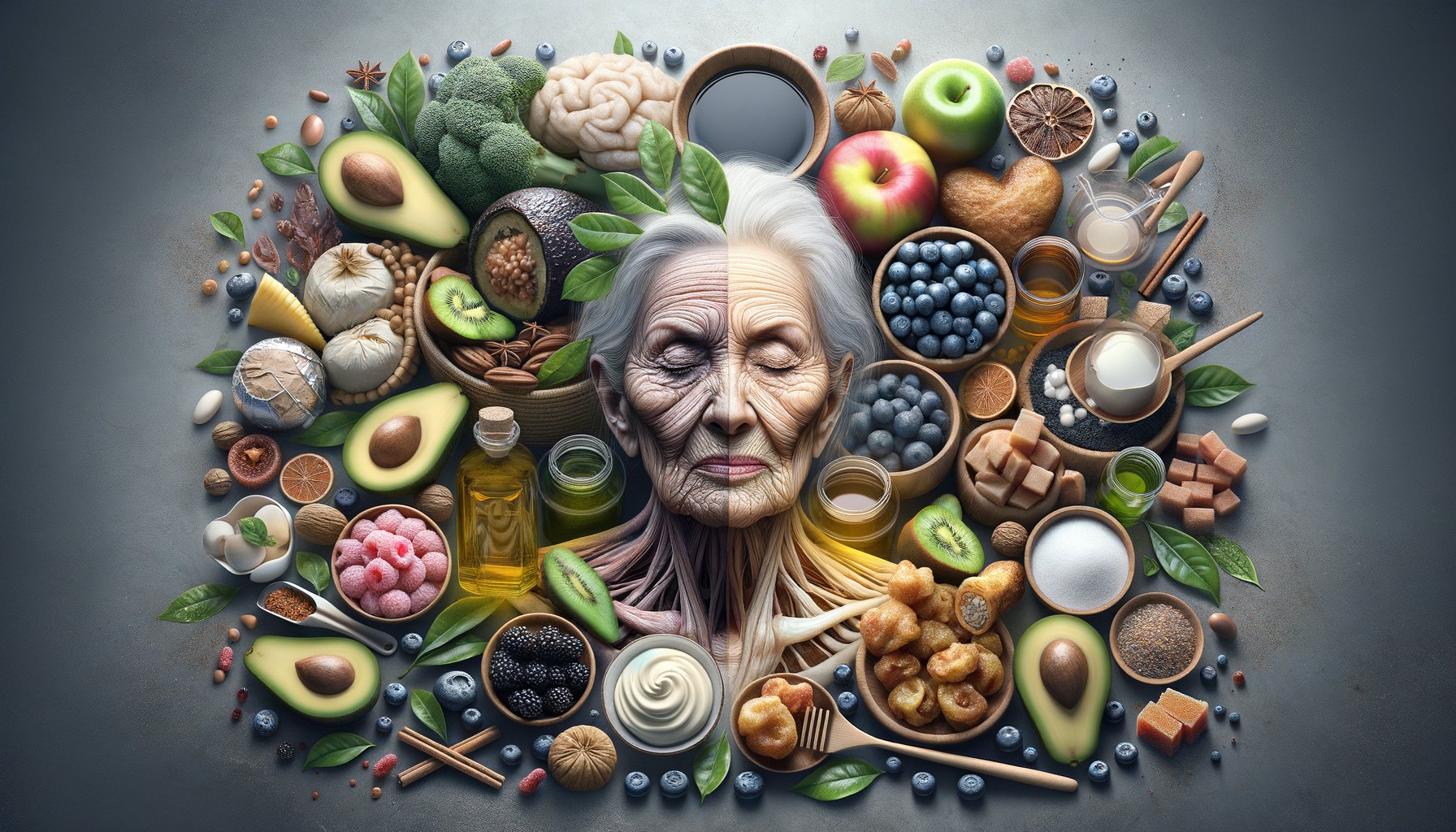
Learn Which Foods Support Or Harm Skin Aging
Understanding Skin Aging: The Role of Diet
Our skin, the body’s largest organ, acts as a mirror reflecting our overall health and well-being. As we age, the skin naturally undergoes changes, but diet can significantly influence this process. While genetics play a crucial role, lifestyle choices, especially dietary habits, can either accelerate or decelerate skin aging. Understanding how certain foods affect the skin can empower us to make informed choices that promote a youthful appearance.
Research shows that a diet rich in antioxidants, vitamins, and minerals can support skin health. These nutrients combat oxidative stress, a major contributor to aging. On the other hand, consuming foods high in sugars and unhealthy fats can lead to inflammation and glycation, processes that damage collagen and elastin, resulting in wrinkles and sagging skin.
Let’s delve deeper into how specific foods can either support or harm skin aging, offering practical insights into maintaining a vibrant complexion through diet.
Foods That Support Skin Health
Incorporating certain foods into your diet can significantly enhance skin health. Here are some key foods known for their skin-supporting properties:
- Fruits and Vegetables: Rich in vitamins A, C, and E, fruits and vegetables like berries, oranges, and spinach provide antioxidants that protect the skin from damage.
- Fatty Fish: Salmon, mackerel, and sardines are high in omega-3 fatty acids, which help maintain skin’s moisture and elasticity.
- Nuts and Seeds: Almonds and sunflower seeds offer vitamin E and healthy fats, essential for skin repair and protection.
- Green Tea: Known for its anti-inflammatory properties, green tea helps reduce redness and irritation, promoting an even skin tone.
These foods not only nourish the skin but also provide the body with essential nutrients that support overall health, making them a valuable addition to any diet aimed at reducing the effects of aging.
Foods That May Accelerate Skin Aging
Just as some foods can promote skin health, others can have the opposite effect. Here are common dietary culprits that may accelerate skin aging:
- Sugary Foods: Excessive sugar intake can lead to glycation, a process that damages collagen and elastin, leading to wrinkles and loss of firmness.
- Processed Foods: High in unhealthy fats and preservatives, processed foods can cause inflammation, contributing to acne and premature aging.
- Alcohol: While moderate consumption is generally safe, excessive alcohol can dehydrate the skin, leading to dryness and dullness.
- Fried Foods: Foods fried in unhealthy oils can increase oil production and clog pores, exacerbating skin issues.
Being mindful of these foods and moderating their consumption can help maintain a youthful and healthy complexion.
The Science Behind Antioxidants and Skin Health
Antioxidants are compounds that inhibit oxidation, a chemical reaction that can produce free radicals, leading to cell damage. In the context of skin health, antioxidants play a crucial role in protecting skin cells from damage caused by environmental stressors such as UV rays and pollution.
Vitamins C and E are among the most potent antioxidants. Vitamin C, found in abundance in citrus fruits and bell peppers, aids in collagen production and helps repair damaged skin cells. Vitamin E, present in nuts and seeds, acts as a barrier to protect the skin from oxidative stress.
Incorporating foods rich in these vitamins can help reduce the appearance of wrinkles and improve skin texture. Studies suggest that a diet high in antioxidants can slow the aging process, making them a cornerstone of any anti-aging dietary plan.
Practical Tips for a Skin-Friendly Diet
Adopting a skin-friendly diet doesn’t have to be complicated. Here are some practical tips to help you incorporate skin-supporting foods into your daily routine:
- Start Your Day with a Smoothie: Blend spinach, banana, and a handful of berries for a nutrient-rich start to your day.
- Snack on Nuts: Keep a small bag of almonds or walnuts handy for a quick, skin-friendly snack.
- Choose Whole Foods: Opt for whole grains, lean proteins, and fresh produce over processed options.
- Stay Hydrated: Drinking plenty of water helps maintain skin’s elasticity and flushes out toxins.
By making these small changes, you can significantly impact your skin’s health and appearance, promoting a youthful glow that reflects your inner vitality.
Conclusion: Nourish Your Skin from Within
In conclusion, the foods we choose to consume play a pivotal role in how our skin ages. By prioritizing a diet rich in antioxidants, healthy fats, and essential vitamins, we can support our skin’s natural defenses against aging. Conversely, being mindful of foods that may harm our skin can prevent premature aging and maintain a youthful appearance.
Remember, while diet is a crucial factor, it is part of a holistic approach to skin health that includes proper skincare, hydration, and lifestyle choices. Embrace these dietary insights to nourish your skin from within, and enjoy the benefits of a radiant, healthy complexion for years to come.